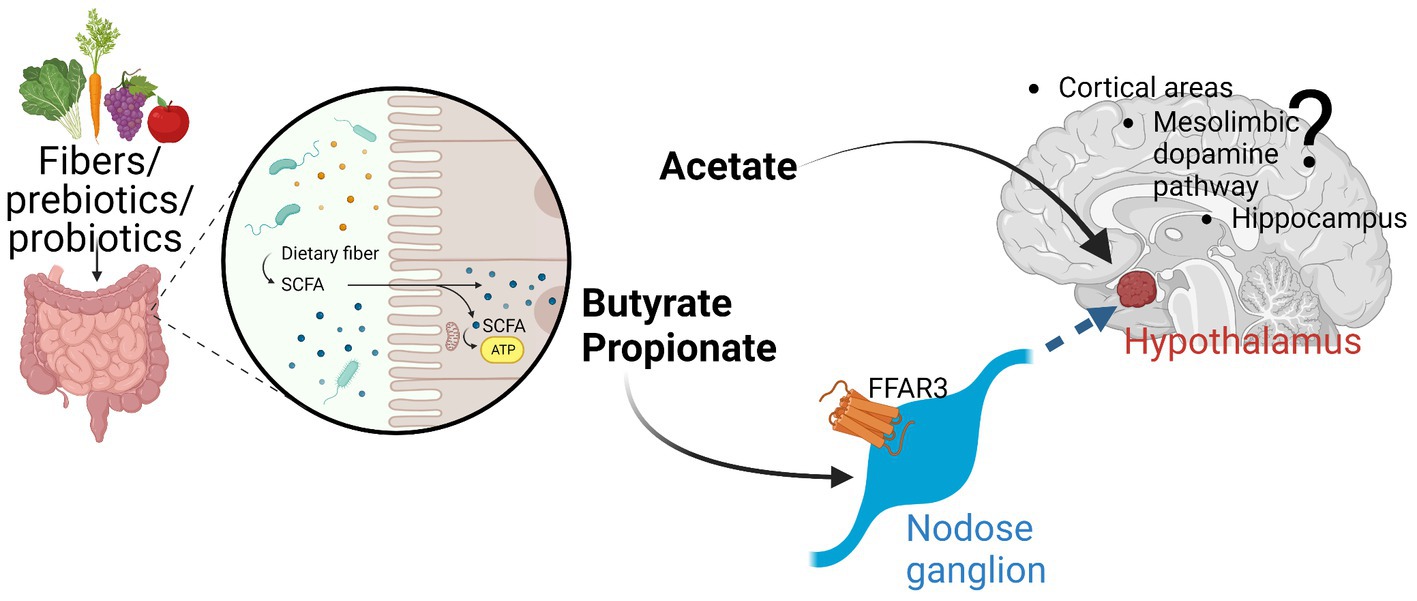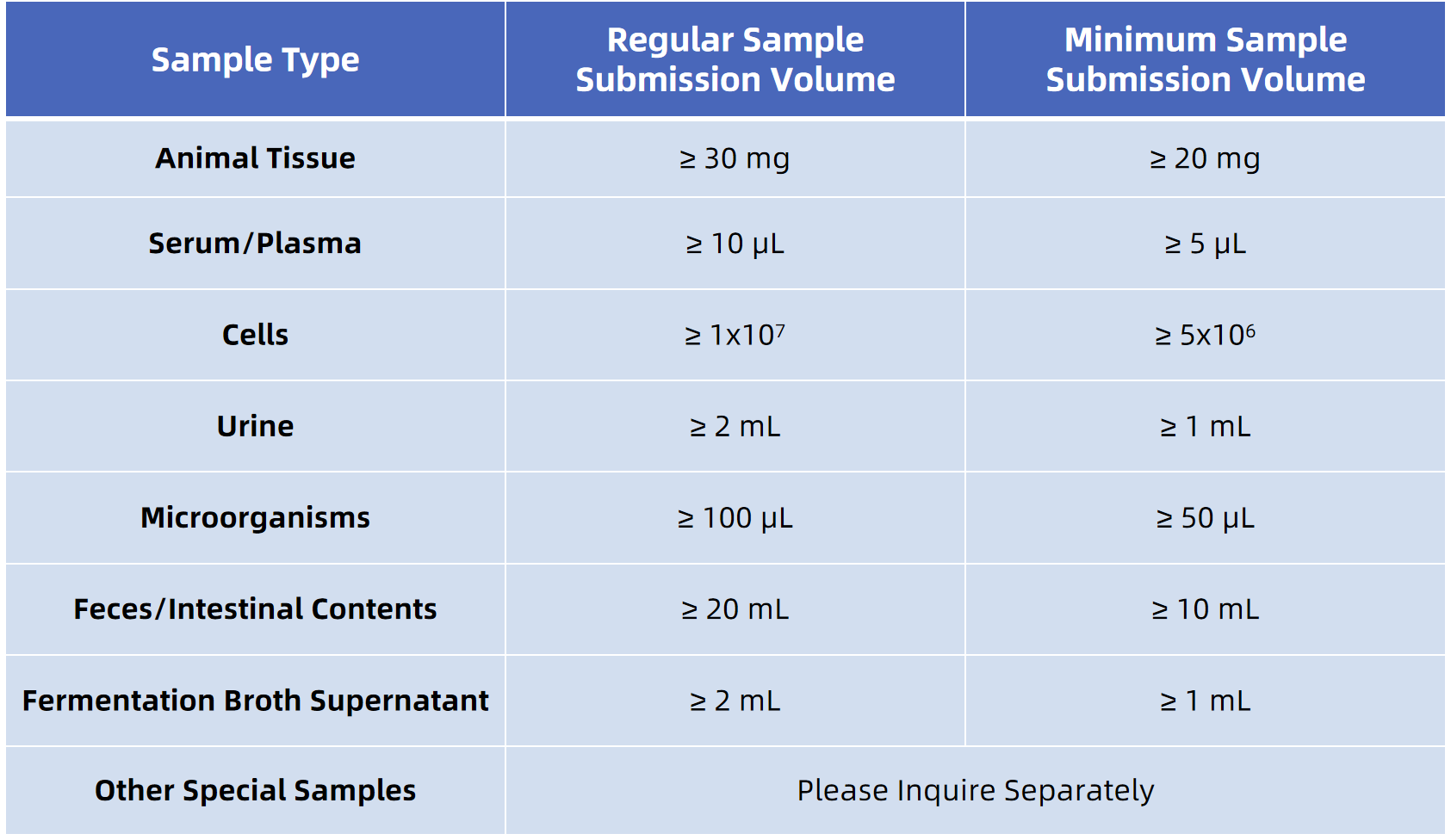Short Chain Fatty Acids Analysis
- Disease Research: Understand the role of short-chain fatty acids in disease pathogenesis, such as intestinal diseases, neurological diseases, etc.
- Microbiome Research: Study the function of the gut microbial community and its interaction with the host.
- Drug Development: Screen and evaluate potential short-chain fatty acid-related drugs and intervention strategies.
Short-chain fatty acids (SCFAs), or volatile fatty acids, are organic acids with 2-6 carbon atoms, including acetate, propionate, butyrate, and smaller amounts of other SCFAs like isobutyrate and valerate. Produced mainly by the anaerobic fermentation of indigestible carbohydrates by gut microbiota, acetate, propionate, and butyrate make up 90-95% of total SCFAs, while branched-chain types, derived from protein breakdown, constitute the rest. SCFAs are crucial for maintaining gut health, providing energy to intestinal cells, regulating water-electrolyte balance, and supporting microbiota composition. They also enhance the gut barrier, exhibit antimicrobial, anti-inflammatory, and anti-cancer effects, and are involved in gene regulation.
Significant variations in SCFA levels are associated with chronic conditions like obesity, diabetes, and inflammatory bowel disease, indicating their potential as biomarkers for early disease screening. However, due to their volatility and acidity, accurately detecting and quantifying SCFAs remains challenging, requiring advanced analytical techniques for reliable measurement in biological samples.

Mansuy-Aubert V, et al. Front Neurosci. 2023.
Figure1. Effects of the Three Main SCFAs on the Brain
Services at MtoZ Biolabs
Short-chain fatty acid analysis at MtoZ Biolabs utilizes advanced gas chromatography-mass spectrometry (GC-MS) technology. Samples are vaporized at high temperatures, and the mass spectrometer detects the separated compounds. The use of selected ion monitoring (SIM) enhances the specificity and sensitivity of the analysis by targeting specific ions, allowing for precise quantification even at low concentrations. Additionally, derivatization of the sample increases the volatility of short-chain fatty acids, improving their separation and detection during gas chromatography.
Our comprehensive analysis services combine GC-MS with unique pre-treatment and derivatization techniques, ensuring accurate identification and quantification of short-chain fatty acids. This integrated approach allows us to deliver reliable data essential for studying their role in health and disease, aiding researchers in advancing their scientific inquiries.
Technical Principles
Selective Ion Monitoring (SIM) technology enhances the detection and quantification of target analytes by focusing on specific characteristic ions with designated m/z values, while excluding unrelated fragment ions. This targeted approach concentrates the scan time, significantly boosting signal strength and sensitivity. With the ability to perform precise qualitative analysis based on retention time, ion m/z values, and relative abundance ratios, SIM is especially valuable for quantifying analytes that cannot be fully separated by GC, ensuring accurate and reliable results for complex sample analyses.
Analysis Workflow
1. Sample Pre-treatment
Carry out appropriate pre-treatment on the sample, such as centrifugation, filtration, etc., to remove large particle impurities and non-volatile substances.
2. Derivatization
Convert short-chain fatty acids into derivatives that are easy to separate and detect in gas chromatography through ketoximation and acidification.
3. GC-MS Analysis
The derivatized sample is separated by gas chromatography and detected by a mass spectrometer.
4. Data Processing and Analysis
Achieve identification and quantification of short-chain fatty acids through mass spectrum matching and quantification analysis.

Service Advantages
1. High Sensitivity and Accuracy: GC-MS technology combined with specialized pre-treatment and derivatization techniques enables high sensitivity and accuracy in short-chain fatty acids analysis.
2. Wide Application: Suitable for various complex biological samples, such as feces, blood, urine, etc.
3. Comprehensive Data Analysis: Including identification, quantification of short-chain fatty acids, and related biostatistics analysis.
Applications
Sample Submission Requirements

Note: Samples should be stored at -20°C or -80°C, and transported under cold chain conditions
MtoZ Biolabs deploys a variety of advanced technologies to focus on the analysis of short-chain fatty acids and ensures high-precision data results and comprehensive reports. If you need to explore other metabolites not listed, please submit your requirements and our professional technical team will proactively contact you.
How to order?







